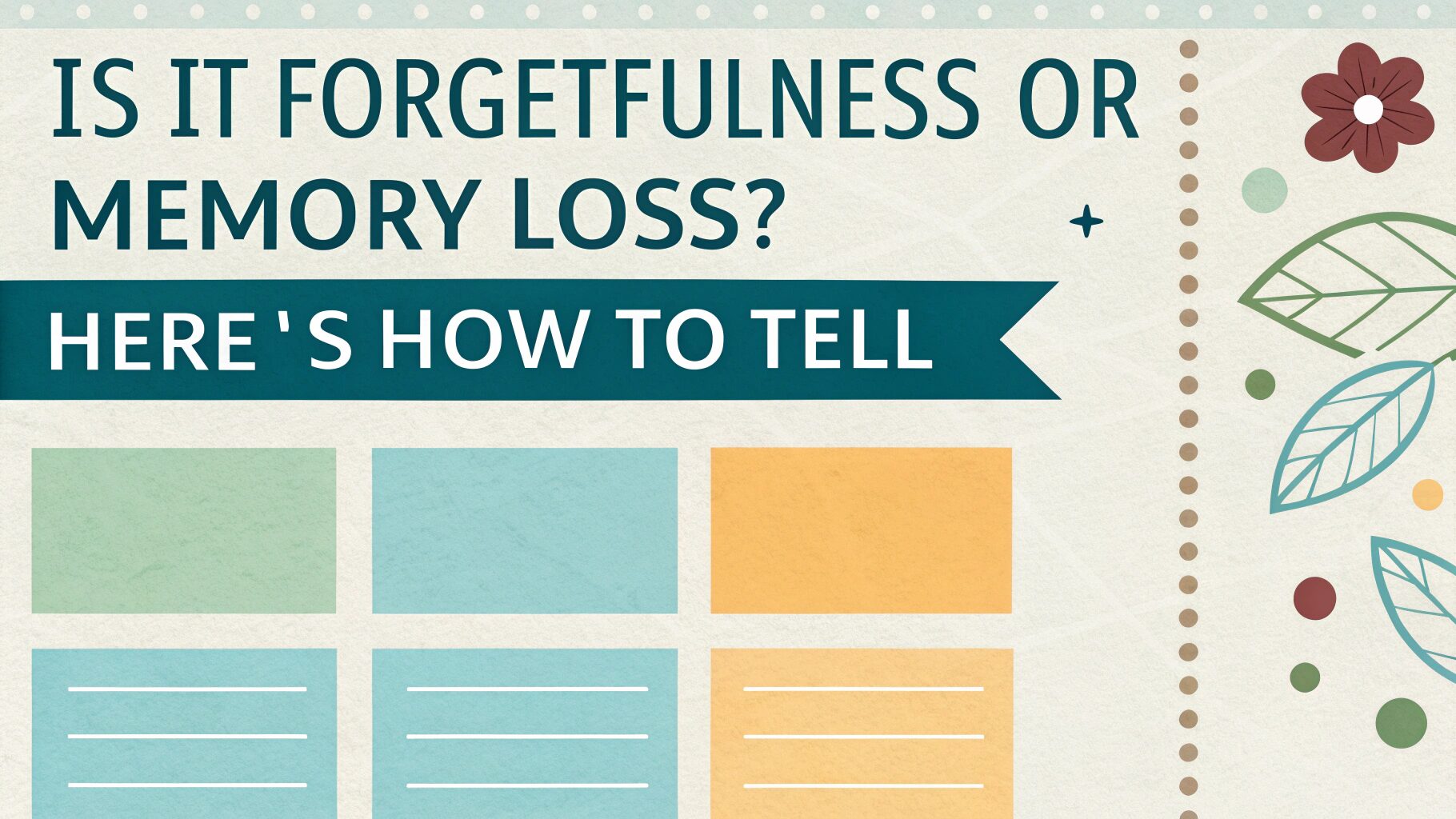Everyone forgets things now and then, especially with age. Misplacing your keys, forgetting someone’s name, or missing an appointment can be frustrating, but these are usually harmless moments. However, when memory issues happen often or start to interfere with daily life, they may need closer attention.
That’s why it is important to know the difference between normal forgetfulness and more serious memory problems. By learning the signs early, you can take the right steps to stay in control of your health and well-being.
What Is Normal Forgetfulness?
Mild forgetfulness is common as people get older. Fortunately, it usually doesn’t cause major problems in daily life and can be managed.
Examples of normal forgetfulness include:
- Sometimes forgetting names or appointments, but remembering them later
- Losing items like keys or glasses and finding them after a short while
- Taking longer to recall certain words or details
- Getting distracted more easily than before
These types of memory slips are typically rare. Most importantly, they don’t stop you from living independently.
When to Be Concerned About Memory Loss
Memory problems that affect your ability to do daily tasks may be more serious. They can make it harder to stay safe and manage responsibilities. In some cases, they could be early signs of cognitive decline.
Signs that may point to memory loss:
- Asking the same questions again and again
- Getting lost in places you know well
- Struggling to follow instructions or conversations
- Confusing times, people, or places
- Pulling away from hobbies or social activities
- Sudden changes in mood or behavior
If any of these signs show up, it’s a good idea to speak with a healthcare provider for advice.
Common Causes of Memory Problems in Seniors
Not all memory issues mean you have dementia. In fact, many causes can be treated. With the right support, memory can often improve.
Some common reasons include:
- Side effects from medicines
- Low levels of vitamin B12
- High stress or anxiety
- Poor sleep
- Depression
- Dehydration
- Thyroid problems
A doctor can help you find the cause and suggest ways to improve your memory. In many cases, small changes can make a big difference.
Simple Ways to Support Memory Health
Healthy habits can help support your brain and improve memory. Even small changes in your daily routine can go a long way.
- Keep your brain active with reading, puzzles, or learning new skills
- Move your body with light exercise like walking or stretching
- Eat healthy foods with fruits, vegetables, and good fats
- Stick to a regular sleep schedule to stay refreshed
- Stay connected with friends and family to stay mentally sharp
Together, these actions can help your brain stay strong and alert. They may also help reduce forgetfulness over time.
When to See a Doctor
Talk to a doctor if you or someone you know:
- Often feels confused or disoriented
- Has trouble finishing daily tasks
- Shows sudden mood swings or behavior changes
- Seems to have memory problems that keep getting worse
Getting help early can make a big difference. It allows you to explore treatments and plan for the future.
Conclusion
It is normal to forget things once in a while. But if memory problems begin to affect your daily life, don’t ignore them. With the right steps and support, you can stay independent and protect your brain.
For more tips on memory health and aging well, visit SeniorNova.com—your trusted source for senior living and wellness advice.
